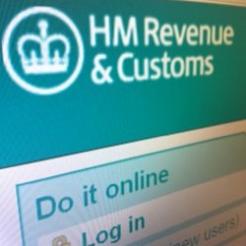HMRC is piloting a new method of resolving VAT and direct tax disputes with small and medium-sized enterprises, including charities, to try to settle conflicts before they reach a tribunal.
The Alternative Dispute Resolution (ADR) will use independent HMRC facilitators to resolve disputes between HMRC and customers during a compliance check but before a decision or assessment has been made. The facilitators will not previously have been involved in the case.
It will be piloted in the North West and North Wales following a trial last year, where 60 per cent of disputes considered by ADR facilitators were either fully or partly resolved.
The new service will try to arrive at a quick and fair outcome for both parties, with the aim of reducing costs and avoiding a tribunal.
Jim Stevenson, HMRC’s assistant director of local compliance, said: “ADR is a good opportunity for HMRC to work together with our customers to potentially resolve disputes much earlier than at present.
“We have found that often there are communication problems. So the HMRC facilitator will help all parties reach a shared and full understanding of the disputed facts and arguments. They will also ensure there is good communication, and help explain what each side is trying to say to the other. The aim is to resolve the dispute or, if not, as many issues as possible.”
Doubts over viability
However, tax partners at PKF are not convinced that the scheme will provide SMEs with a meaningful alternative to tribunals.
John Cassidy, tax investigations and resolutions partner at the accountancy firm, said: "On the face of it, any measure that provides SMEs with an alternative to a tribunal, which can be disproportionately costly and time-consuming for smaller companies, will be welcomed by business owners.
“However, SMEs will need to be reassured that a procedure reliant upon an HMRC facilitator is genuinely independent - bosses will shun the ADR unless they believe that they’ll get a fair hearing from the taxman. Entrepreneurs may also point out that the Treasury is asking them to make a leap of faith that it is not prepared to make itself - why can’t the resolution procedure be mediated by the SME’s tax advisers, provided that they are a reputable practice?"
Graham Elliott, VAT partner at haysmacintyre, added: "On the face of it it is a welcome development, but whether it proves to be more than a gimmick will depend on how independent the HMRC facilitators both are and are perceived by the taxpayer to be.
"The initiative may prove to be a big disappointment if, either, the taxpayers believe that HMRC facilitators always err towards HMRC’s view, or the HMRC negotiators suspect that the HMRC facilitators are trying too hard to appear neutral and are taking the side of the taxpayer."
ADR will not affect existing processes or review and appeal rights.
According to HMRC, cases that may be suitable for the pilot may involve any of the following features:
- Facts that are capable of further clarification
- Disputes that might benefit from obtaining more suitable evidence
- Factual and/or technical matters in which there is legitimate scope for any party to obtain a better understanding of the other’s arguments
- Issues which are capable of further mediation and settlement by agreement within the framework of the Litigation and Settlements Strategy (LSS)
Cases not suitable for this pilot may involve any of the following features:
- Cases which cannot be legitimately settled within the parameters of the LSS other than by litigation
- Issues which require clarification in the wider public interest. These might include matters of industry-wide application
- Issues linked to or involving co-ordinated appeals issues (“stood behind” cases) eg ‘compound interest’ type disputes
- Cases that could only be resolved by an HMRC departure from its established technical or policy view.









